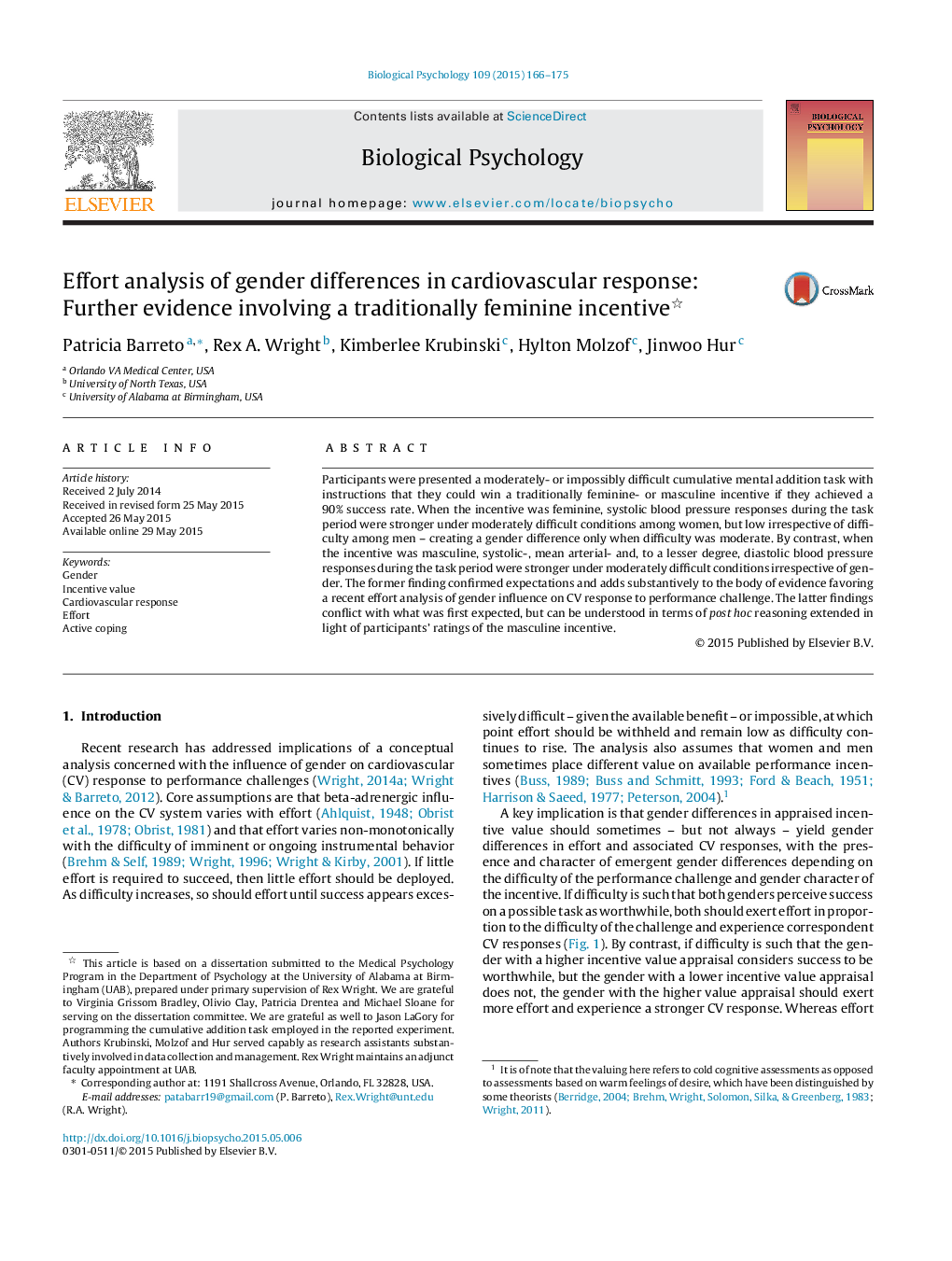| Article ID | Journal | Published Year | Pages | File Type |
|---|---|---|---|---|
| 920828 | Biological Psychology | 2015 | 10 Pages |
•Participants were presented a moderately- or impossibly difficult cumulative mental addition task with instructions that they could win a traditionally feminine- or masculine incentive if they achieved a 90% success rate.•Where the incentive was feminine, systolic blood pressure responses during work were stronger under moderately difficult conditions among women, but low irrespective of difficulty among men – creating a gender difference only where difficulty was moderate.•Where the incentive was masculine, systolic-, mean arterial- and, to a lesser degree, diastolic blood pressure responses during work were stronger under moderately difficult conditions irrespective of gender.•The Feminine finding confirmed expectations and adds substantively to the body of evidence favoring a recent conceptual analysis concerned with gender influence on CV response to performance challenge.•The Masculine findings conflict with what was first expected, but can be understood in terms of post hoc reasoning extended in light of participants’ ratings of the masculine incentive.
Participants were presented a moderately- or impossibly difficult cumulative mental addition task with instructions that they could win a traditionally feminine- or masculine incentive if they achieved a 90% success rate. When the incentive was feminine, systolic blood pressure responses during the task period were stronger under moderately difficult conditions among women, but low irrespective of difficulty among men – creating a gender difference only when difficulty was moderate. By contrast, when the incentive was masculine, systolic-, mean arterial- and, to a lesser degree, diastolic blood pressure responses during the task period were stronger under moderately difficult conditions irrespective of gender. The former finding confirmed expectations and adds substantively to the body of evidence favoring a recent effort analysis of gender influence on CV response to performance challenge. The latter findings conflict with what was first expected, but can be understood in terms of post hoc reasoning extended in light of participants’ ratings of the masculine incentive.
